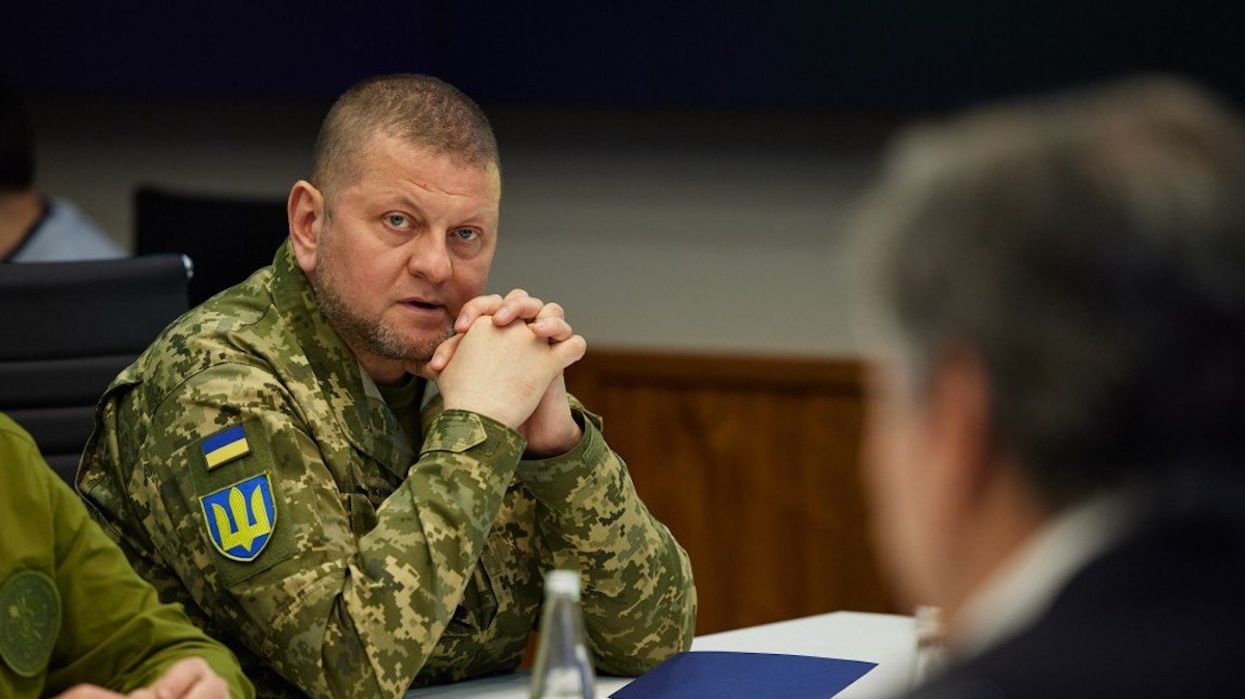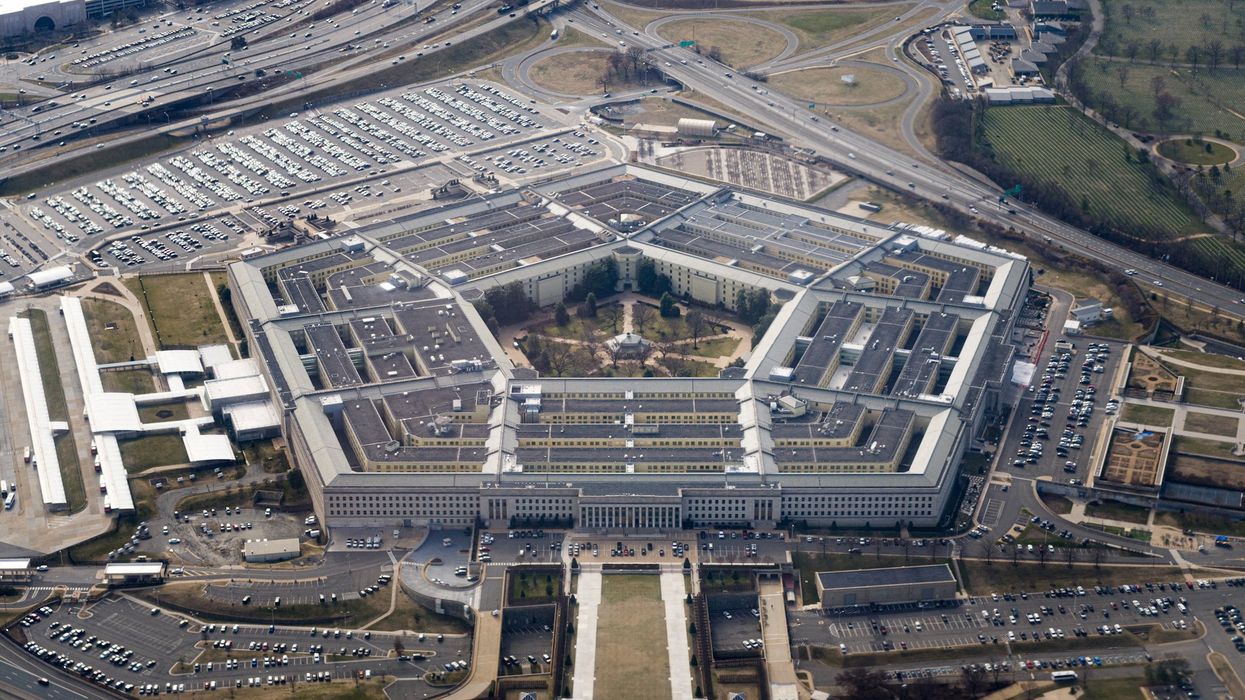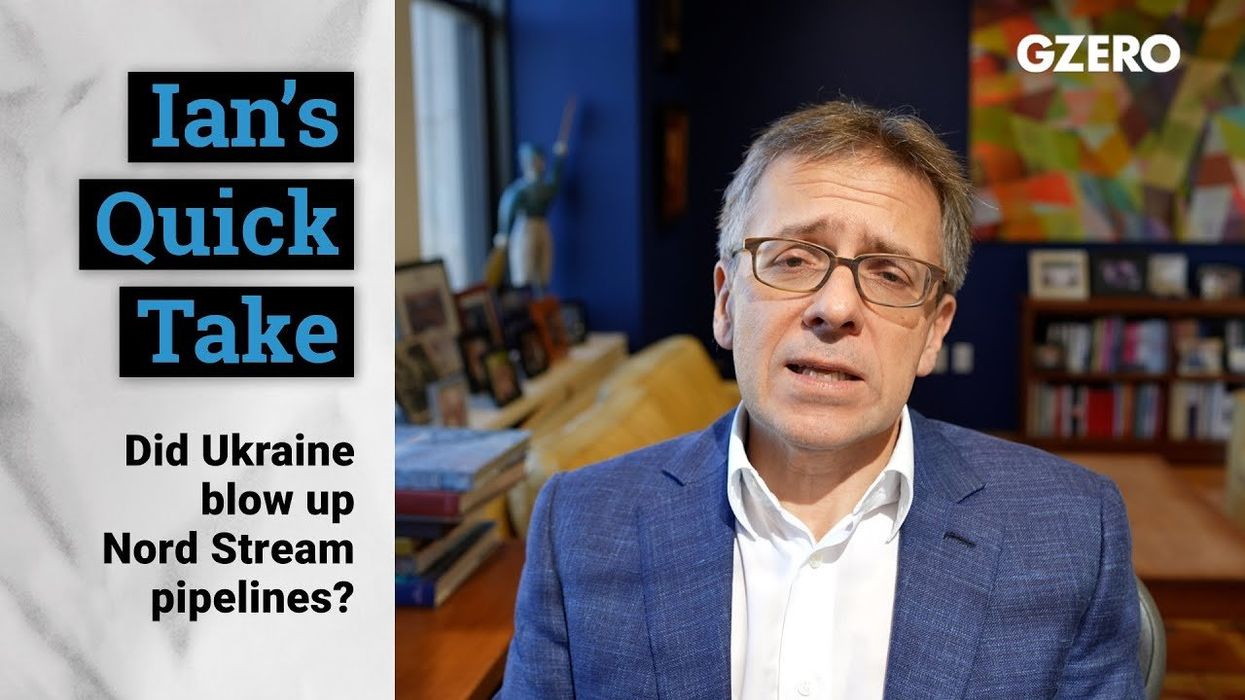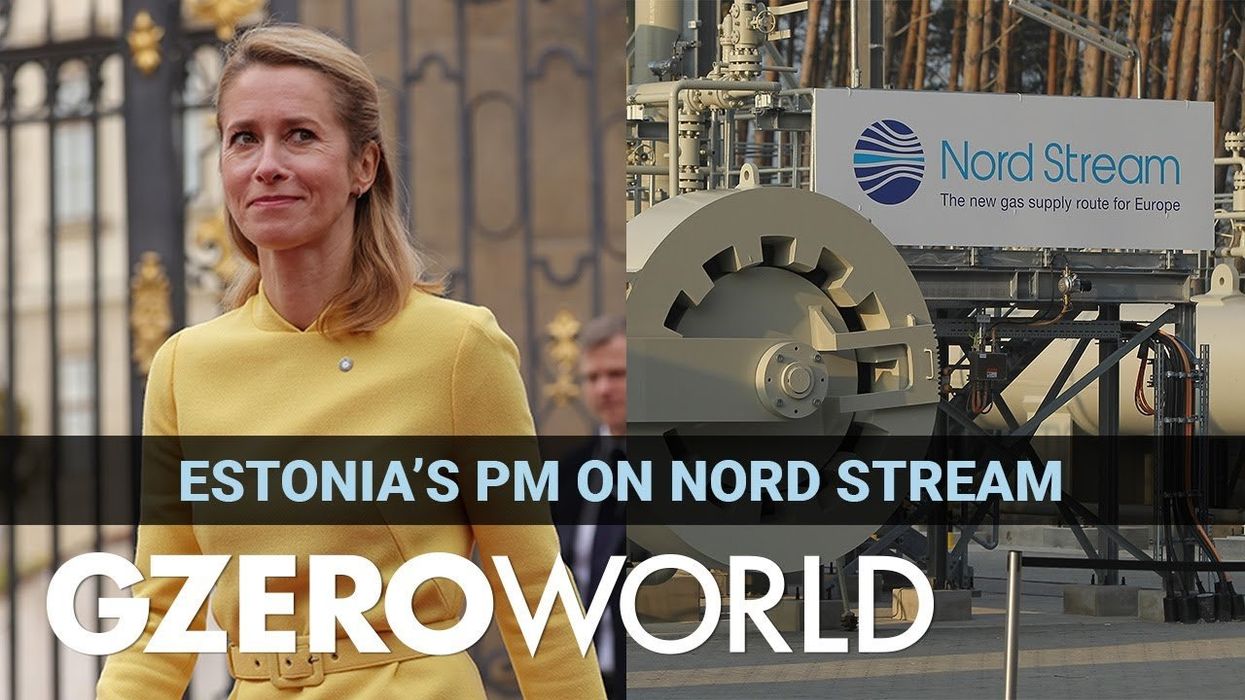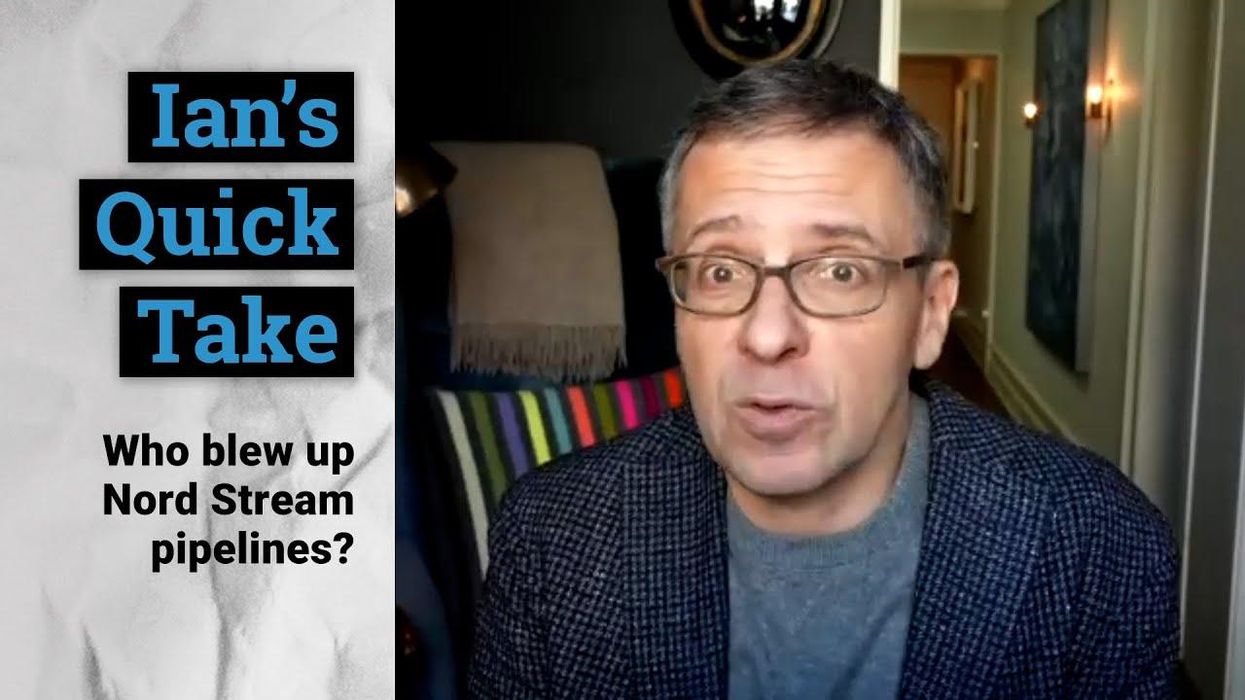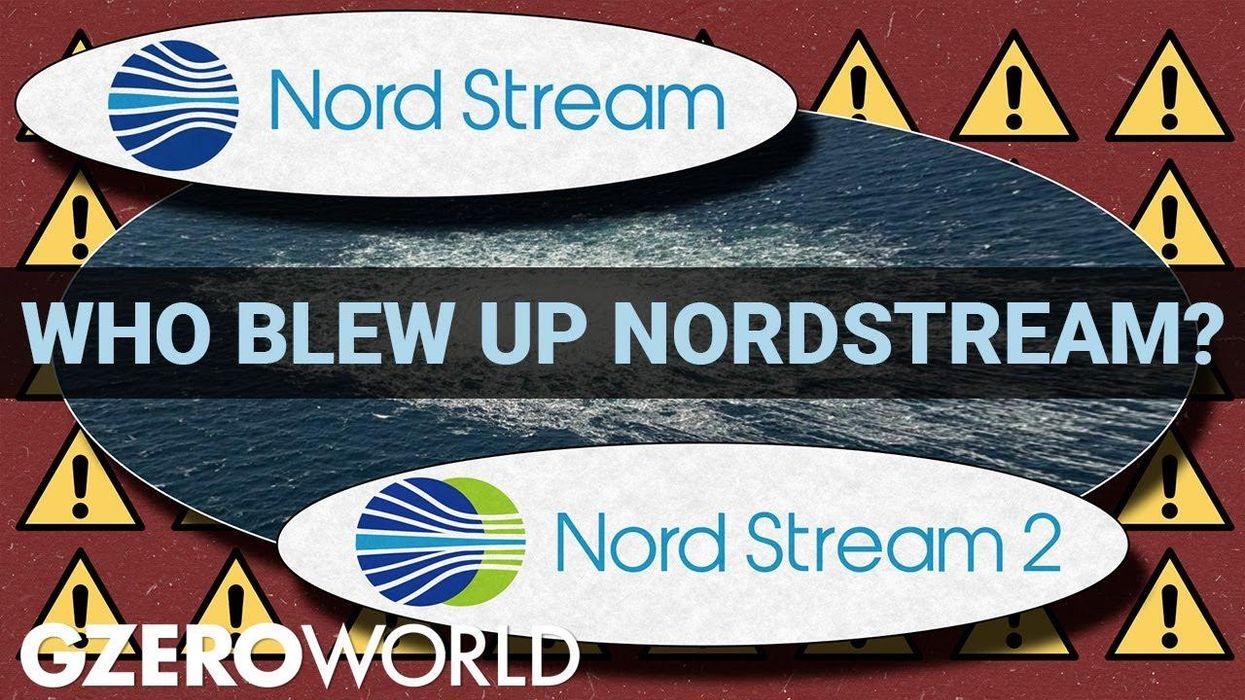What We're Watching
Troubling accusations in Ukraine
Unnamed Ukrainian officials claim Col. Roman Chervinsky, of Ukraine’s special operations forces, coordinated a sabotage operation that caused three explosions at the Nord Stream 1 and 2 pipelines on Sept. 26, 2022. Is this the latest sign of tensions between President Volodymyr Zelensky and his military chief, Gen. Valery Zaluzhny?
Nov 12, 2023
